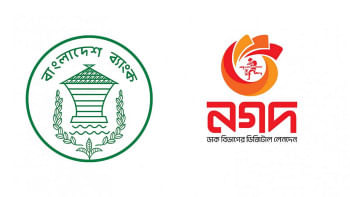Religious leaders spreading awareness on and eradicating VAW
 Imams participating in a group discussion on eradicating VAW. Star Archive
Imams participating in a group discussion on eradicating VAW. Star Archive
In our society, violence against women (VAW) is deeply rooted in the culture and moral dimensions of the members where impetuousness of authoritarian power and physical force prevails over justice and equality. Against this background legal and institutional reforms alone can do little because these address only the manifested crimes, not the embedded causes. Therefore, to eradicate the epidemic of VAW our ethical and moral values need to be upheld. Our religious leaders and institutions can play a great role in this regard. Masjid, Mandir and other religious institutions are such public spaces where a sensitised religious leader can deeply stir public awareness on violence against women. In Bangladesh where fatwa related VAW cases are rampant, such progressive role of the religious leaders can be a change maker.
Taking this into account, UNFPA and Ministry of Religious Affairs (MoRA) conducted training for religious leaders. It focused on institutionalising behavioural change and targets powerful opinion makers which in Bangladesh, are often religious leaders. Under this programme, religious leaders from different parts of the country have been trained to create an enabling society through interfaith dialogues and community meetings to address and prevent gender based violence.
The Hindu Religious Welfare Trust (1893) and the Buddhist Religious Welfare Trust (1984) were established for the wellbeing of the Hindu and Buddhist community in Bangladesh respectively, and operates under MoRA. In addition to Muslim religious leaders, MoRA conducted training programmes to develop and enhance the awareness of social and religious leaders of Hindu, Buddhist, and Muslim communities on reproductive health, motherhood, gender issues, dowry, HIV/AIDS, and other important women's rights issues.
During the training programme, 1,980 religious leaders, including 1,710 Imams were trained and their capacity developed in terms of addressing VAW. Nine interfaith dialogues were organized in seven Divisions, Cox's Bazaar, and Bogra District with participants from different religious organizations to address the prevention of violence against women from a religious point of view. Discussing and understanding masculinity and engaging young adolescents and boys in the programme have been extremely successful and an effective tool and has been incorporated into nearly every programme.
Ministry of Religious Affairs expressed enthusiasm in having all Imams, especially in the field, trained on gender sensitivity and gender based violence. Findings from a field visit jointly conducted by MoRA and UNFPA indicated that the community at large are learning about the negative effects of gender violence from their religious leaders during religious gatherings. As well as being respected members of the community and having the capacity to deeply impact Bangladeshi society, religious leaders can continue to change the social behaviour of Bangladesh's citizens in terms of combating violence against women and girls.

 For all latest news, follow The Daily Star's Google News channel.
For all latest news, follow The Daily Star's Google News channel. 



Comments